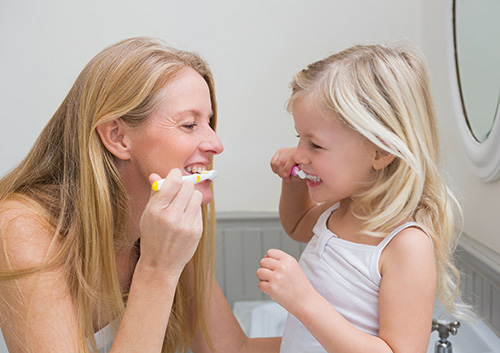Be Prepared!
December 14th, 2022

When you’re busy at school or work, when you’re on vacation, when you’re on the road to adventure—preparation helps everything go smoothly. Especially when the unexpected happens! So, how can you be prepared for any orthodontic and dental situations which might arise? By creating these useful—and portable—travel kits.
Everyday Basics Kit
Dentists recommend brushing twice a day and flossing at least once each day for clean and healthy teeth. But after a long day at school or work with no time to head home before your date, or a garlic-heavy lunch in the cafeteria, or a dash from the classroom to after-school activities, you might feel like there’s no time like the present to give your smile a bit of a boost.
Be prepared with a small travel bag filled with these easy-to-carry basics to get you through your busy day with clean teeth, fresh breath, and a confident smile:
- Toothbrush and case—and do make sure your case is ventilated so your brush can air dry. Bacteria love a closed, damp environment!
- Toothpaste
- Mini-bottle of mouthwash
- Small mirror—to check for any lunch leftovers
- Dental floss—to remove any lunch leftovers. Use braces-friendly dental floss if you have traditional braces.
- Dental Wax—to cover any uncomfortable wires or brackets
- Interproximal brushes—to remove food particles from around your braces and between your teeth
- Extra rubber bands
- Aligner/Retainer case—keep your aligner or retainer safe and clean while you’re eating
Flight Gear
Getting set to travel by air again after this long lay-over? Your basic kit will do the job with just a few minor additions and alterations.
- A travel version of your manual or electric toothbrush and travel case
- Plug adapter or voltage converter as needed for your electric brush if you’re visiting another country
- Quart size, resealable plastic bag to hold your carry-on supplies. Toothpaste and mouthwash are included in the list of items which need to fit carry-on guidelines.
- Travel-size toothpaste—3.4 oz (100 ml) or smaller tube size. (And an almost-empty regular size tube doesn’t count!)
- Travel-size mouthwash—also in a 3.4 oz (100 ml) or smaller container
- Our Moline or Geneseo, IL or Clinton, IA office’s phone number. In case of emergency, Dr. Randall Welser and Dr. Lora Marine can give you advice on how to handle any problem which might arise when you’re far from home.
Looking for Adventure?
If you’re camping in the forest, leaving for the lake, going for a road trip, or heading out on any travel adventure, you’ll be bringing the dental care basics, of course. We’d also like to recommend some items to take along in the event of a dental emergency while you’re away from home:
- Dental mirror
- Cotton rolls
- Over-the-counter pain relief—including a tube of oral pain relief gel
- Ice pack
- Dental wax—this handy item not only protects against sharp wires, it can cover the sharp edges of a broken bracket
- Temporary fillings—to protect your sensitive tooth if a filling or crown is lost
- Tooth preservation kit—to protect a dislodged tooth in case it can be reimplanted. (This means seeing a dentist very quickly, usually within 30 minutes of the accident.)
And, if you’ll be mountain biking, water skiing, or enjoying any activity where there’s potential for impact, don’t forget to pack your mouthguard!
Preparation is key to eliminating a lot of stress in our daily lives, and who couldn’t use a bit of stress-relief these days? Make room in your bag, locker, desk, luggage, or backpack for some portable, lightweight dental necessities. Be prepared to share your confident, healthy smile no matter what life has in store!



